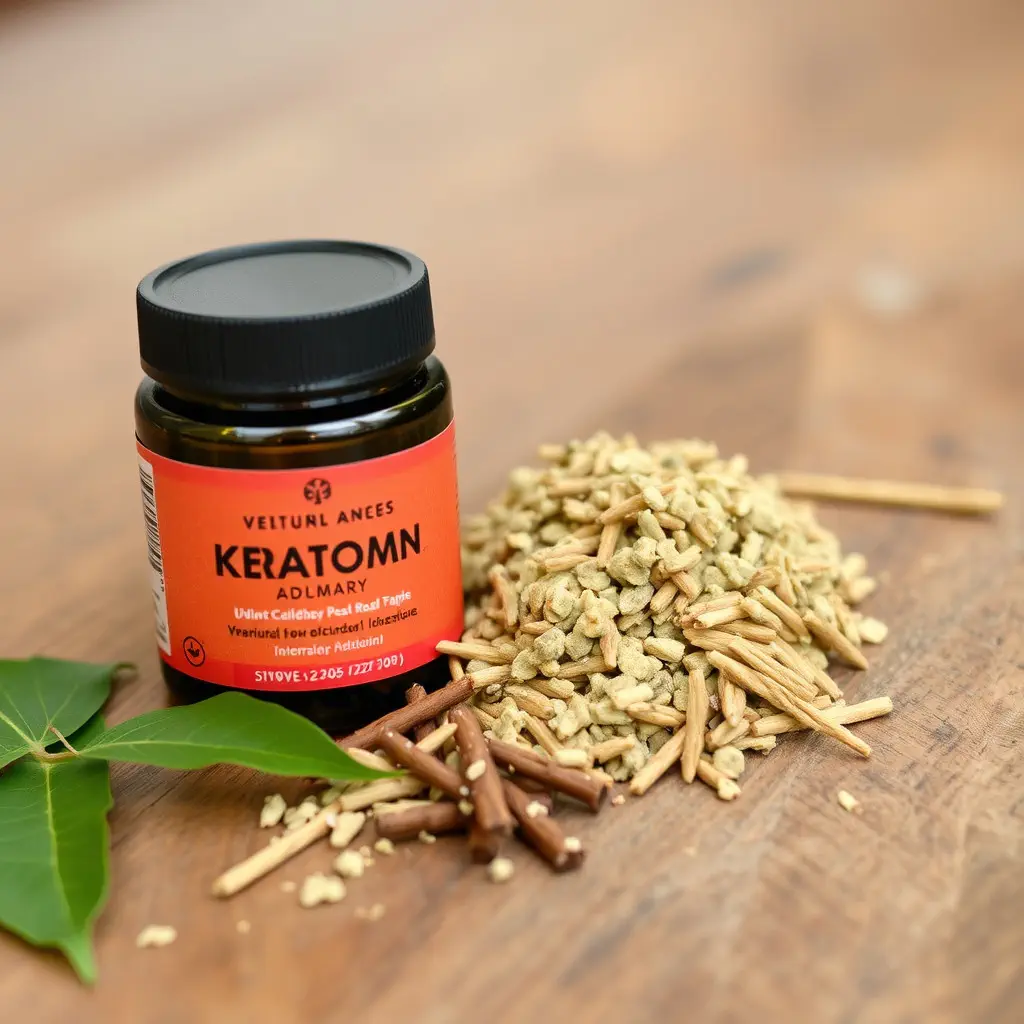Kratom, a plant from Southeast Asia, has gained attention among Michigan athletes for its potential performance-enhancing benefits, primarily due to its alkaloids mitragynine and 7-hydroxymitragynine. While its legal status in Michigan is subject to change and varies by local jurisdiction, with some areas banning it, as of the latest information, kratom's use remains relatively unregulated at the state level. Athletes must stay informed on the evolving legality of kratom within their specific location in Michigan to comply with both state laws and sports governing body regulations. The benefits claimed by users include increased stamina, pain management, and improved mood, which could be advantageous for athletic performance. However, the scientific community is still assessing its efficacy and safety, and there are concerns about potential adverse effects and interactions with other substances. Athletes should consult healthcare professionals and verify local laws to ensure they are not violating any rules before considering kratom as part of their training regimen, especially in light of its varying legal status across Michigan communities. To stay compliant and informed on the current legality of kratom in Michigan, it is crucial to frequently check "is kratom legal in michigan" resources.
Exploring the nuanced relationship between kratom and athletic prowess, this article delves into how this naturally-occurring alkaloid can support performance enhancement. With a focus on Michigan’s legal landscape regarding kratom use, we examine its potential benefits for energy, concentration, and recovery in athletes. Understanding the intricacies of its legality within the state and its implications for training regimens is crucial for those seeking to leverage kratom’s effects responsibly and effectively. Join us as we navigate this emerging field of athletic performance support with a critical eye on safety and efficacy in the context of Michigan sports law.
- Kratom's Role in Enhancing Athletic Performance: Legal Status and Potential Benefits in Michigan
- Understanding Kratom: Effects on Energy, Focus, and Recovery for Athletes in Michigan
- Navigating the Legality of Kratom and Its Impact on Athletic Training in Michigan
Kratom's Role in Enhancing Athletic Performance: Legal Status and Potential Benefits in Michigan

Kratom, a plant originating from Southeast Asia, has garnered attention within athletic communities for its potential role in performance enhancement. In Michigan, where athletic prowess is celebrated and fitness culture thrives, the legal status of kratom is an important consideration for athletes seeking to leverage its properties. As of the current understanding of the law, kratom is not explicitly listed as a controlled substance in Michigan, allowing for its relatively unrestricted use by athletes looking to improve their performance. This ambiguous legal standing requires athletes to stay informed about any changes in legislation, as the regulatory landscape can shift and may vary by locality within the state.
The potential benefits of kratom for athletic performance stem from its active alkaloids, mitragynine and 7-hydroxymitragynine, which have been studied for their effects on energy levels, pain management, and mood enhancement. Mitragynine, in particular, has been observed to increase stamina, reduce fatigue, and potentially improve athletic endurance. Additionally, some users report that kratom can aid in post-exercise recovery by easing muscle soreness, which may lead to more consistent training schedules and improved performance over time. However, it is crucial for athletes to approach the use of kratom with caution, as its effects can vary significantly between individuals, and its long-term impact on health remains under investigation. Athletes should also be aware that while kratom is currently legal in Michigan, its status is subject to change, and its use may be governed by specific rules within different athletic organizations or leagues. Therefore, it is imperative for athletes to consult with healthcare professionals and adhere to the regulations set forth by their governing bodies before integrating kratom into their performance enhancement strategies.
Understanding Kratom: Effects on Energy, Focus, and Recovery for Athletes in Michigan

Kratom, a tropical evergreen tree native to Southeast Asia, has garnered attention within athletic communities for its potential impact on energy, focus, and recovery. The leaves of kratom contain compounds known as alkaloids, primarily mitragynine and 7-hydroxymitragynine, which are believed to interact with the body’s opioid receptors, influencing various physiological systems. Athletes in Michigan, where the legal status of kratom is subject to local regulations, are exploring its benefits for performance enhancement. In Michigan, it’s essential to be aware that the legality of kratom can vary by county or city; while some areas have banned it, others allow its sale and consumption. For those athletes interested in incorporating kratom into their regimen, it’s crucial to stay informed about the current laws in their specific location.
Energy-wise, kratom is often reported to provide a stimulating effect at lower doses, which can be beneficial for athletes looking to increase their stamina and endurance during training or competition. The alkaloids present in kratom can also contribute to heightened focus and mental clarity, which are vital components of peak athletic performance. Additionally, some users claim that kratom aids in post-exercise recovery by reducing pain and inflammation, potentially shortening recovery time between intense training sessions. However, it’s important for athletes to approach the use of kratom with caution due to its potential for side effects and interactions with other substances, including prescription medications. The impact of kratom on athletic performance is an emerging area of interest that requires further research to fully understand its efficacy and safety for athletes in Michigan.
Navigating the Legality of Kratom and Its Impact on Athletic Training in Michigan

Kratom, a botanical derivative from the leaves of Mitragyna speciosa, has gained attention within athletic circles for its potential performance-enhancing properties. As athletes in Michigan seek to harness its stimulant or sedative effects to optimize training and recovery, it’s crucial to navigate the legal status of kratom in the state. Currently, the legality of kratom in Michigan is a matter of local laws; while the federal government has not placed restrictions on kratom, some counties and cities within Michigan have enacted ordinances that range from bans to strict regulations. Athletes training in different regions of Michigan must be aware of these nuances as they plan their training regimens, as violations could lead to legal complications or disqualification from competitions adhering to anti-doping regulations. The inconsistent legal landscape underscores the importance for athletes and trainers to stay informed about the evolving legal status of kratom in their jurisdictions. This knowledge is essential for compliance with both state laws and the rules of sports governing bodies, which may include kratom on their lists of prohibited substances without regard to its legality outside of competition settings. As such, athletes looking to incorporate kratom into their athletic training must carefully assess the legal implications in their specific locations within Michigan.
In conclusion, the exploration of kratom’s role in enhancing athletic performance in Michigan reveals a complex interplay between its purported benefits, such as increased energy and focus, and its legal status. While kratom is a subject of debate due to its regulatory standing, it remains a point of contention within the realm of athletic training. Athletes in pursuit of improved recovery and performance may find kratom’s potential advantages appealing, yet it is imperative to approach its use with caution due to legal variations across different regions of Michigan. Prospective users should consider the nuances of its legality and consult with healthcare professionals or adhere to the guidelines set forth by governing athletic bodies before integrating kratom into their regimen. Understanding the intricacies of kratom’s effects and its compliance with local laws is essential for athletes aiming to maintain a competitive edge while remaining within legal boundaries in Michigan.






